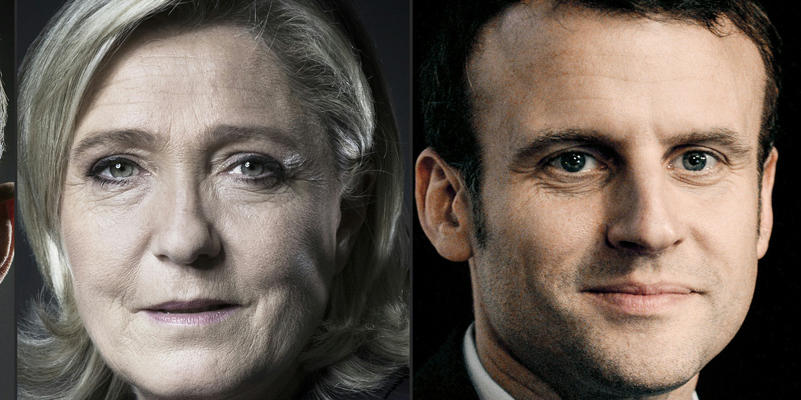“The ball is in his court.” These are the words with which Emmanuel Macron concluded his invitation to Marine Le Pen to propose a debate, a few days before the European elections. In an interview with Le Parisien last weekend, he openly mentioned his desire to fight with the leader of the National Rally. According to him, “if we think that this is an election where part of the destiny of France is at stake, we have to debate.” But why does the President of the Republic want to debate with Marine Le Pen so much? Thomas Guénolé, political scientist, and Benjamin Morel, lecturer in public law at the University of Paris II Panthéon Assas, shed light on Emmanuel Macron’s motivations.
While the European elections will take place on June 9, it is the National Rally which is leading the way with 34% of voting intentions. For its part, the list of the presidential majority, led by Valérie Hayer, is losing more and more ground with only 15% of voting intentions. In this context, Emmanuel Macron launched an invitation to debate to Marine Le Pen by affirming that if the latter was “ready to debate and clarify her ideas”, he was also. A proposal which has little chance of succeeding if we are to believe the analysis of Benjamin Morel, lecturer in public law at the University of Paris II Panthéon Assas.
According to him, “Europe is not the real reason” for this exchange since the increase in the number of deputies from the National Rally does not “change the situation on the future of Europe”. He nevertheless points to an election “with a lot of abstention”, where the Macronist electorate is “little mobilized”. This is an abnormal situation for an electorate present in every election. As he recalls, Emmanuel Macron uses the same dramatization strategy as that of 2019, which allowed him to raise Nathalie Loiseau’s figures after the mention of “nationalist leprosy”.
As Benjamin Morel points out, this desire to debate consists above all of “mobilizing one’s electoral base”, which is currently lacking in Emmanuel Macron’s party. He specifies that Marine Le Pen is not in this situation since her electorate is at “35% in the polls with 80% certainty of votes”. According to him, “it is a soap opera whose ending we already know”.
For his part, political scientist Thomas Guénolé also believes that the debate will not take place, while affirming that the real issue for the President of the Republic remains “the score of the Macronist list in the European elections”. He therefore recalls that it is unusual to see this figure be below 20%, “moreover for an election which concerns one of the causes dear to their own electorate, European construction”.
Thomas Guénolé continues his analysis by explaining that the presence of Valérie Hayer as head of the list strengthens the actions of Emmanuel Macron. He recalls that his political experience remains minimal compared to the issue, which pushes the President of the Republic to try to “save soldier Hayer”.
In this scenario, it is very likely that Emmanuel Macron will have to bear the responsibility for a defeat in the European elections, which obliges him to get involved in inviting Marine Le Pen to the debate. As he explains, the president of the RN group in the National Assembly has nevertheless set “unacceptable” conditions, namely a resignation of Emmanuel Macron or a dissolution of the National Assembly in the event of a victory of the National Rally. Demands that reflect a desire to “say no without saying no”, as Thomas Guénolé concludes.
